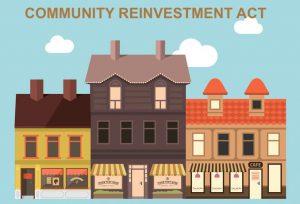There has been a law on the books since 1977 requiring large banks to make credit and other financial products available to low-to-moderate income neighborhoods where they do business. If big banks were compliant to the Community Reinvestment Act (CRA), payday loans and other predatory financial products would not be so prominent in these neighborhoods.
The Community Reinvestment Act (CRA) was enacted in 1977 but revised in 1995 and 2005. The Federal Deposit Insurance Corporation (FDIC), Federal Reserve Board (FRB), and the Office of the Comptroller of the Currency (OCC) are supposed to audit the large banks and make sure they are compliant with the law.
The rapid growth of payday lenders, check cashing stores, and other predatory firms in these neighborhoods is a clear indicator that the big banks are violating the law and ignoring a significant number of American citizens.
According to a 2017 survey by the FDIC, one of the agencies responsible for overseeing CRA, 25 percent of U.S. households are unbanked or underbanked. About 55 million Americans don’t have access to essential financial services; many of them live in banking desert areas where the next branch is miles away.
U.S. BANKS
Few of the largest banks in the world are American banks–JP Morgan Chase, Bank of America, and Wells Fargo, to name a few. The three banks, as mentioned earlier, have $6.5 trillion in total assets. They do have the resources to serve low-to-moderate income households. Instead, they withdrew from the neighborhoods that needed them the most because they are not profitable enough.
During the 2007-09 financial crisis, American taxpayers spent $700 billion bailing out large financial institutions. All American taxpayers were there for the large banks when they needed help. Bank consolidations and banking desert areas are what American taxpayers got in return.
Americans want FDIC, FRB, and OCC to do their job and enforce the CRA. The need that Congress saw back in 1977 when they enacted the law is still there. The absence of strong financial institutions allows predatory lenders to prey on American consumers.







